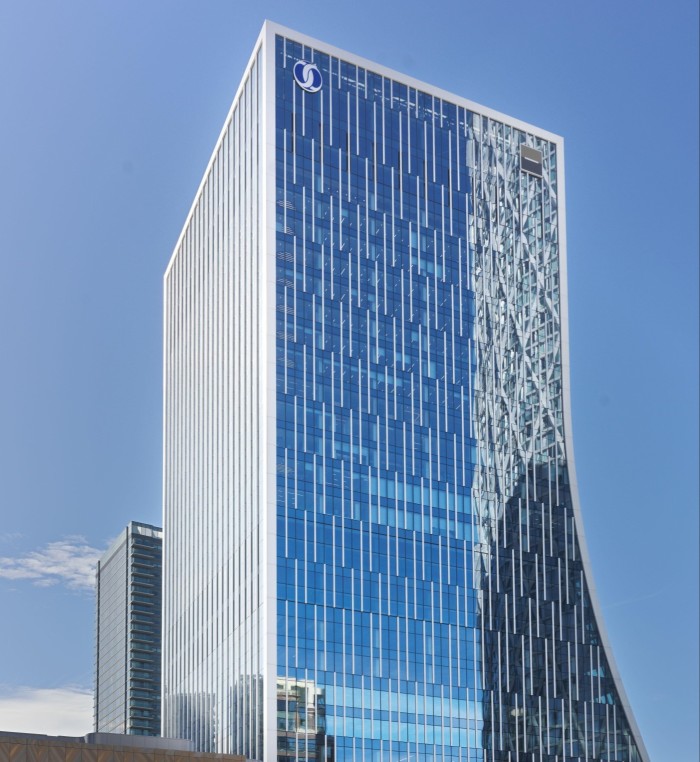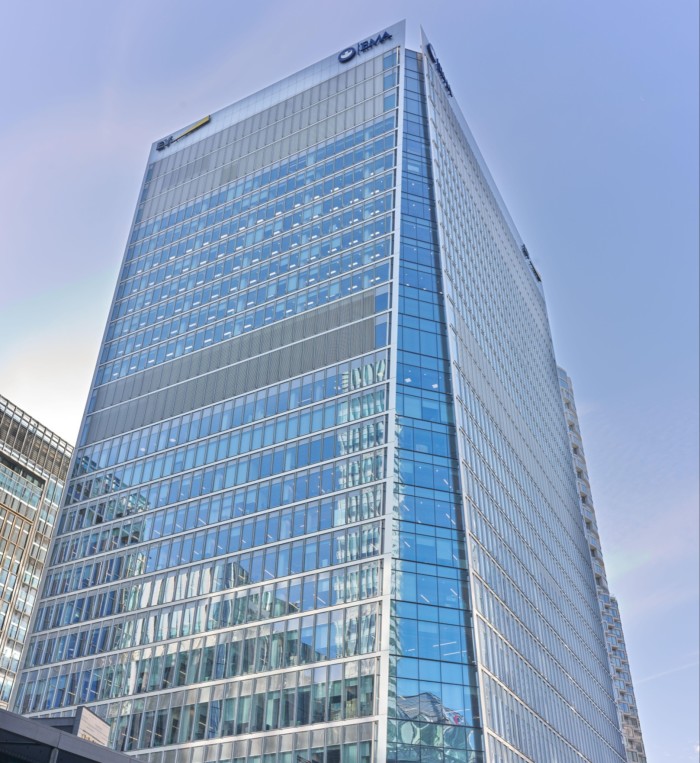Unlock the Editor’s Digest for free
Roula Khalaf, Editor of the FT, selects her favourite stories in this weekly newsletter.
More than £900mn has been wiped off the value of Canary Wharf Group’s office buildings, as the financial district landlord secured backing from lenders for a £553mn debt deal.
The developer and manager of the London docklands estate — owned by Brookfield and the Qatar Investment Authority — on Thursday reported a 14.7 per cent annual fall in the value of its property holdings to £6.8bn in 2023.
Independent valuers heavily marked down its office buildings, which make up a majority of the portfolio, to £4.3bn, offset by rising retail values and steady residential assets.
Commercial property values have been hit by rising interest rates and fears about the health of the office market. Canary Wharf has also been challenged by the departure of key tenants, as it works to diversify the estate.
The group is burdened with £3.7bn of net debt. Its push to refinance upcoming loans represents a high-profile example of the challenge faced by property owners around the world at a time of higher borrowing costs and lower property values.
The Canary Wharf Group on Thursday said it would extend loans tied to an office building at 25-30 Churchill Place by five years, alongside two other debt deals. The building is home to Big Four accounting firm EY.
Chief financial officer Becky Worthington told the Financial Times the company was negotiating with lenders and reviewing its options for a further £900mn of debt it aims to extend or refinance before the end of the year.
“We have been working on the debt side of the balance sheet,” said Worthington. She said the “loans are testament to the strength of our assets, the transformation that has been taking place at Canary Wharf and the support we have from our lenders for our long-term plan”.
Canary Wharf is in a stronger position than some other investment groups given the long leases on some of its main office assets, and the deep pockets of its shareholders.
However, the appeal of its core office portfolio has been called into question by the departure of tenants such as HSBC and Clifford Chance. Others, including Barclays and Morgan Stanley, have decided to stay. The estate’s older office buildings are likely to require expensive upgrades in order to attract new tenants or to adapt them to other uses.
“Values have gone down. They can’t refinance it on a like-for-like basis. But they have the money to refinance it and get more time. I think that is really the story,” said Ramzi Kattan at Moody’s Ratings.


Like other real estate investors, Canary Wharf has had to cut the size of its loans to refinance against properties that are worth less. The deal at 25-30 Churchill Place, which is also leased to the European Medicines Agency, included repaying about £100mn of £439mn in loans, as well as an agreement to incrementally pay down more of the debt over time.
The group’s loan-to-value ratio has already crept up above its target of 50 per cent in recent years, according to company documents, as the value of its holdings has been hit by higher interest rates and fears over the health of the office market.
Shareholder support will be critical to weathering the current property market downturn. Brookfield and QIA in October announced they were putting in £300mn of new equity and extending a £100mn shareholder loan to Canary Wharf — their first equity injection since buying Canary Wharf in 2015.
Worthington said: “We are planning and running the business on the basis that we do not need any more money from shareholders. However, the capital that they did put into the business has certainly been very helpful.”
The group had already agreed about £930mn of debt deals in the past year, with lenders including Citi, Standard Chartered, Starwood and CBRE Investment Management. The loans were tied to its residential portfolio and development pipeline.
On Thursday it also agreed a £80mn construction loan for new serviced apartment buildings, and replaced an existing construction facility with a £132mn loan on a mixed-use building that includes offices, hotels and leisure facilities.
The company reported increased revenue and record visitor numbers, with 1.3mn people coming to the estate each week on average. Underlying profit before tax, which excludes changes in property values, fell from £40mn in 2022 to £28mn last year, due to higher financing costs.
Canary Wharf still has to tackle a November maturity on £564mn in loans tied to 1-5 Bank Street, an office tower home to SocGen and EBRD. Worthington said there has been “very positive progress” in negotiations with lenders to pay down and extend the debt.
It also faces an April 2025 maturity on the first £350mn tranche of its green bond, which trades at about 92 pence on the pound, according to data from Bloomberg.
Canary Wharf Group Investment Holdings, one of the primary entities within the group’s corporate structure, received written confirmation from Brookfield and QIA that the two shareholders would provide financial support as part of the “going concern” analysis in its annual report.









